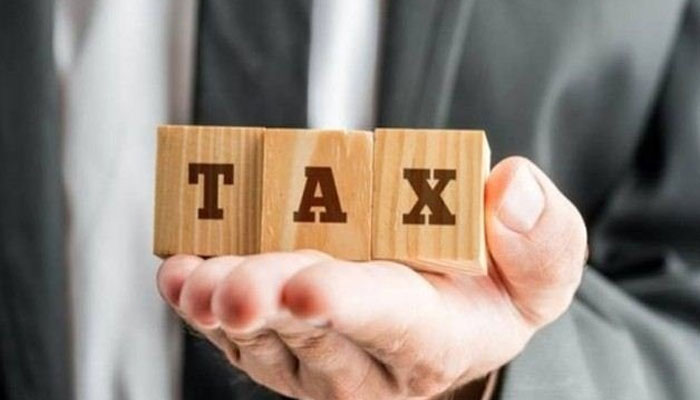Govt eliminates ADR-based tax, increases income tax by 500bps
KARACHI: The government is projected to generate revenue of Rs60-70 billion through an increase in the standard corporate tax rate on banks, although this will likely reduce the lenders’ profitability by 10-12 per cent, analysts said on Saturday.
On Friday, the federal cabinet approved the promulgation of the Income Tax Ordinance to implement changes to the advance-to-deposit ratio (ADR) for banks. According to the draft ordinance, the proposed additional income tax of 10-15 per cent for banks with low ADR will be abolished. However, the standard income tax for banks has been raised from 39 per cent to 44 per cent for the current tax year. For the tax year 2026, the rate will decrease to 43 per cent. For tax year 2027 and onwards, the rate will be reduced to 42 per cent.
The existing 10 per cent super tax will remain in place, resulting in an increase in the banking sector’s effective tax rate from 49 per cent to 54 per cent.
Saad Hanif, head of research at Ismail Iqbal Securities, said that this measure -- raising the corporate tax -- seems designed to boost tax revenue as the Federal Board of Revenue (FBR) struggles to meet its collection targets.
“It is expected to generate Rs65 billion for the national exchequer. Plus, almost all banks reached the 50 per cent ADR mark,” Hanif said.
The central bank’s data shows that banks’ ADR level reached 49.7 per cent as of December 6, up from 47.8 per cent the previous month. Banks’ advances climbed to Rs15.1 trillion as of December 6, up from Rs14.9 trillion in November. Conversely, deposits decreased to Rs30.3 trillion, down from Rs31.1 trillion a month earlier, while investments remained steady at Rs29 trillion. The investment-to-deposit ratio increased to 95.7 per cent from 93.2 per cent in November.
Awais Ashraf, director of research at AKD Securities Limited, indicated that the rise in the standard corporate tax rate is expected to impact bank profitability by 10 per cent, 8.0 per cent, and 6.0 per cent for the years 2024, 2025, and 2026, respectively. Nevertheless, it presents a win-win scenario for both banks and the government.
“While banks have bypassed ADR-related taxes by lending to NBFIs [non-bank financial institutions] and PSEs [public-sector enterprises], redirecting these funds towards the industrial sector in the long term to avoid taxation could lead to an increase in non-performing loans (NPLs) and unnecessary demand,” Ashraf said.
“The government stands to benefit from additional tax revenue while maintaining a manageable external account by mitigating excessive demand.”
According to a Topline Securities analyst, raising the tax rate to 44 per cent will enhance government revenue by Rs60-70 billion and reduce banking sector earnings by 10-12 per cent. According to him, this development is negative for the banking sector, as banks are now required to pay an additional 5.0 per cent tax in the current year, 4.0 per cent in 2026, and 3.0 per cent from 2027 onwards, regardless of the ADR level.
-
 Can AI Bully Humans? Bot Publicly Criticises Engineer After Code Rejection
Can AI Bully Humans? Bot Publicly Criticises Engineer After Code Rejection -
 Search For Savannah Guthrie’s Abducted Mom Enters Unthinkable Phase
Search For Savannah Guthrie’s Abducted Mom Enters Unthinkable Phase -
 Imagine Dragons Star, Dan Reynolds Recalls 'frustrating' Diagnosis
Imagine Dragons Star, Dan Reynolds Recalls 'frustrating' Diagnosis -
 Steve Jobs Once Called Google Over Single Shade Of Yellow: Here’s Why
Steve Jobs Once Called Google Over Single Shade Of Yellow: Here’s Why -
 Barack Obama Addresses UFO Mystery: Aliens Are ‘real’ But Debunks Area 51 Conspiracy Theories
Barack Obama Addresses UFO Mystery: Aliens Are ‘real’ But Debunks Area 51 Conspiracy Theories -
 Selma Blair Explains Why Multiple Sclerosis 'isn't So Scary'
Selma Blair Explains Why Multiple Sclerosis 'isn't So Scary' -
 Will Smith Surprises Wife Jada Pinkett With Unusual Gift On Valentine's Day
Will Smith Surprises Wife Jada Pinkett With Unusual Gift On Valentine's Day -
 Shamed Andrew Has Paid Royal Favours With ‘national Scandal’
Shamed Andrew Has Paid Royal Favours With ‘national Scandal’ -
 Prince William Ticked Off By How Andrew ‘behaved With Staff’
Prince William Ticked Off By How Andrew ‘behaved With Staff’ -
 Prince William Questions Himself ‘what’s The Point’ After Saudi Trip
Prince William Questions Himself ‘what’s The Point’ After Saudi Trip -
 James Van Der Beek's Friends Helped Fund Ranch Purchase Before His Death At 48
James Van Der Beek's Friends Helped Fund Ranch Purchase Before His Death At 48 -
 King Charles ‘very Much’ Wants Andrew To Testify At US Congress
King Charles ‘very Much’ Wants Andrew To Testify At US Congress -
 Rosie O’Donnell Secretly Returned To US To Test Safety
Rosie O’Donnell Secretly Returned To US To Test Safety -
 Meghan Markle, Prince Harry Spotted On Date Night On Valentine’s Day
Meghan Markle, Prince Harry Spotted On Date Night On Valentine’s Day -
 King Charles Butler Spills Valentine’s Day Dinner Blunders
King Charles Butler Spills Valentine’s Day Dinner Blunders -
 Brooklyn Beckham Hits Back At Gordon Ramsay With Subtle Move Over Remark On His Personal Life
Brooklyn Beckham Hits Back At Gordon Ramsay With Subtle Move Over Remark On His Personal Life




